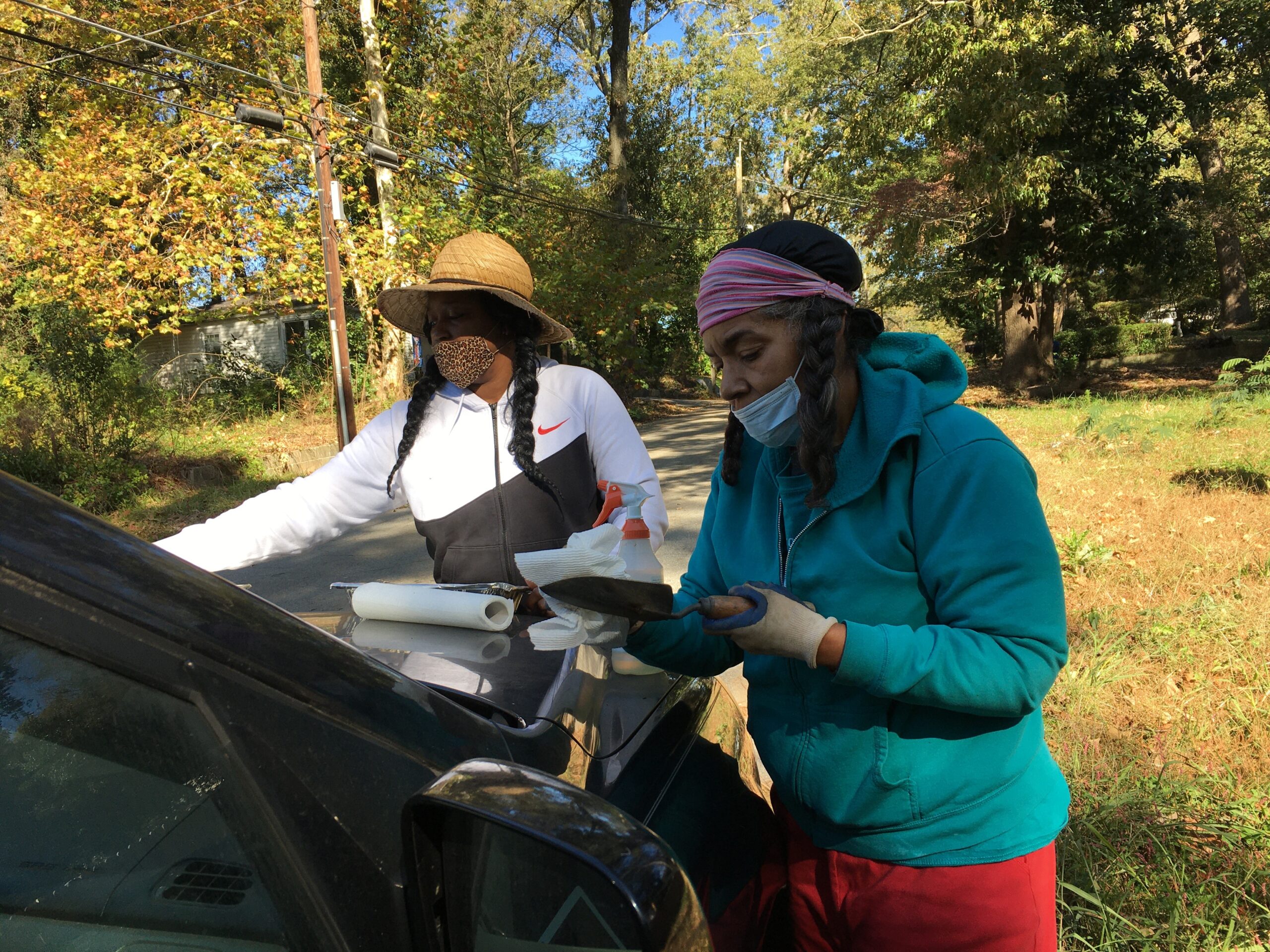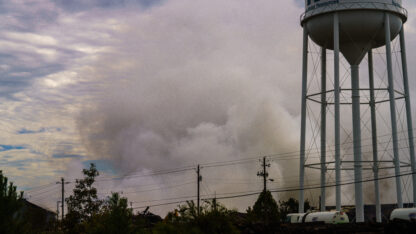Last year, high levels of lead were found in English Avenue, a largely Black and low-income Atlanta neighborhood. The U.S. Environmental Protection Agency has gotten involved and is conducting more testing and removing polluted soil from people’s yards and gardens.
Concern over that contamination has sparked a project to test soil across the state.
The initiative allows Georgians to check their yards for free and is led by Emory University and public health agencies. The deadline to send soil samples in is Sunday, Nov. 15.
SoilSHOP: How to dig up and submit soil samples
The Atlanta nonprofit Historic Westside Gardens was instrumental in figuring out how badly contaminated some parts of English Avenue were.
Taranji Alvarado, an agricultural coach with Historic Westside Gardens, remembers a fellow gardener finding a rock that looked shiny.
“Honestly, I was like, ‘Gold! There’s gold in that rock,’” she said. But it wasn’t gold; it was slag, an industrial byproduct. “Everything that glitters ain’t gold.”
Now her group is helping with the broader soil-testing initiative, as well.
Last week, Alvarado and Natashia Jones, another agricultural coach, visited a house in Grove Park to check the soil there.
Christina Lee, a new gardener, had pepper plants growing near her front door and sweet potato vines creeping along the lawn on the side of the house. Alvarado, who had brought seeds to share, admired the tidy garden. But she was really there to dig up dirt.
Lee said she had heard about the lead in nearby English Avenue, and that’s what got her interested in getting her yard checked, too.
“Just making sure it’s safe,” she said. “I don’t have children, but I do have pets, and we’re out here all the time.”
Lead can accumulate in soil from the paint used in old houses and from the past use of leaded gasoline in cars. It can also come from industrial sources.
“There is no safe level of lead for children,” said Eri Saikawa, an associate professor in Emory University’s Department of Environmental Sciences.
She and her students did the initial lead testing in English Avenue that got the EPA involved. But she’s worried that there are more places with high levels of lead still out there.
“Even very small exposure is detrimental, potentially, for kids,” Saikawa said. “I don’t understand, to be honest, why we’re not taking more preventative action.”
The biggest risk for children is from eating soil contaminated with lead, which can happen if they’re intentionally eating dirt or just playing outside and then not washing their hands thoroughly enough, Saikawa said. And it can cause permanent damage to their brains. Lead exposure can lead to behavior problems and affect children’s IQs and ability to learn and to pay attention.
“It is too late to do anything after figuring out that they are being exposed,” she said.
Emory is working with the Georgia Department of Public Health, Georgia Adopt-A-Stream and the federal Agency for Toxic Substances and Disease Registry to collect and test soil from all over the state.
“I’m really hoping we get the samples from where children are playing,” Saikawa said, for instance from yards and from gardens.
Anyone in Georgia can send their dirt in for free testing.
Saikawa said in addition to soil testing, she’d like to see more children being screened for lead exposure, too.
Taranji Alvarado with Historic Westside Gardens said she’s just happy something is happening now.
“I don’t even think about the past of it. I think about, ‘It’s getting done now,’” she said. “And Historic Westside Gardens is a part of it getting done. And that’s the part that excites me — you know what I’m saying? Like, yeah, we’re making a move to clean it up.”








